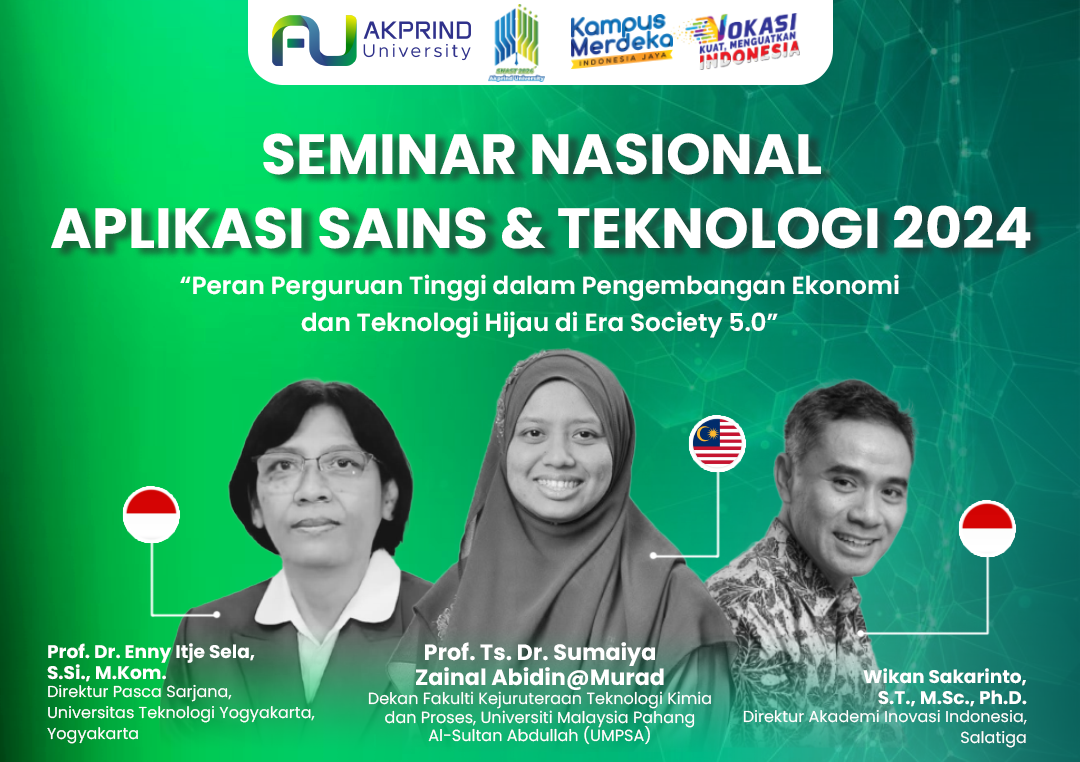STRATEGI PEMANFAATAN DANA DESA UNTUK KELESTARIAN LINGKUNGAN HIDUP DI INDONESIA
DOI:
https://doi.org/10.34151/prosidingsnast.v1i1.5007Keywords:
environmental sustainability, village development, village fundAbstract
Nowadays, environmental issues have not been prioritized in village development. Village funds as a village financial instrument have the potential to be used in activities that support environmental sustainability. However, the utilization of village fund still focuses on economic and infrastructure issues. Therefore, this study aims to analyze the strategy of utilizing village fund to support environmental sustainability. This research used a library research approach. The results of study explain that there are 4 strategies in utilizing village funds to support environmental sustainability in Indonesia, namely (1) Formulating and budgeting the provision of incentives as environmental services through village fund; (2) Evaluating regulations that related to the priority utilization of village fund; (3) Increasing synergy and collaboration between stakeholders to provide education and socialization on the use of village funds to support environmental sustainability; and (4) Applying the concept of green budgeting in the state financial planning and budgeting process. These four strategies can be implemented if the village community and government are aware about the importance of environmental sustainability. Thus, the natural and environmental conditions in Indonesia will become better. The author realizes that this research still has limitations in collecting and studying references based on a library research approach.. In addition, research related to village fund needs to conduct field studies to deepen existing problems. However, the author hopes that this research can be used as a recommendation or reference for the Ministry of Villages in formulating priorities for the use of village fund.
References
Arifin, B., Wicaksono, E., Tenrini, R. H., Wardhana, I. W., Setiawan, H., Damayanty, S. A., Solikin, A., Suhendra, M., Saputra, A. H., Ariutama, G. A., Djunedi, P., Rahman, A. B., & Handoko, R. (2020). Village fund, village-owned-enterprises, and employment: Evidence from Indonesia. Journal of Rural Studies, 79, 382–394. https://doi.org/10.1016/j.jrurstud.2020.08.052
Ditjen PDP. (2023). Kebijakan Dana Desa Tahun 2024.
Djuwityastuti, & Astuti, W. (2018). WHY VILLAGE FUND NOT YET PROMOTING ENVIRONMENTAL SUSTAINABILITY? AN EMPIRICAL STUDY OF VILLAGE FUND INCENTIVES IN CENTRAL JAVA PROVINCE, INDONESIA. Yustisia, 7(1), 190–196. https://doi.org/10.20961/yustisia.v7i1.18326
Faqih, A. F. (2017). Model Kebijakan Anggaran Berbasis Lingkungan (Green Budgeting) di Pemerintah Provinsi Jawa Tengah. Universitas Diponegoro.
Fitriyani, R., Gusmansyah, & Guevarrato, G. (2022). Buku Panduan Pelembagaan dan Replikasi Transfer Fiskal Berbasis Ekologi (EFT) TAPE dan TAKE. The Asia Foundation. Seknas FITRA.
Grieg-Gran, M. (2000). Fiscal Incentives for Biodiversity Conservation: The ICMS Ecológico in Brazil. https://doi.org/10.2139/ssrn.279173
Howes, S., & Davies, R. (2014). Survey of Recent Developments. Bulletin of Indonesian Economic Studies, 50(2), 157–183. https://doi.org/10.1080/00074918.2014.938403
Irawan, S. (2019, December 16). Dana Desa bisa digunakan untuk proyek perubahan iklim. Ini caranya. The Conversation. https://theconversation.com/dana-desa-bisa-digunakan-untuk-proyek-perubahan-iklim-ini-caranya-128464
Kartika, R. S., & Arief, S. (2021). Skala Prioritas Penggunaan Dana Desa di Kabupaten Semarang, Demak, dan Kendal. Jurnal Kebijakan Pembangunan, 16(1), 105–114. https://doi.org/10.47441/jkp.v16i1.141
Mochamad, A., & Amin, S. (2019, December 13). Ketahanan Iklim bermula di Desa. Mongabay. https://www.mongabay.co.id/2019/12/13/ketahanan-iklim-bermula-di-desa/
Naldi, L., Nilsson, P., Westlund, H., & Wixe, S. (2015). What is smart rural development? Journal of Rural Studies, 40, 90–101. https://doi.org/10.1016/j.jrurstud.2015.06.006
Natalia, A., & Maulidya, E. N. (2023). Aktualisasi Empat Pilar Sustainable Development Goals (SDGs) Di Perdesaan Kecamatan Natar Kabupaten Lampung Selatan. JIIP: Jurnal Ilmiah Ilmu Pemerintahan, 8(1), 21–41. https://doi.org/10.14710/jiip.v8i1.16513
Nazir, Moh. (2014). Metode penelitian. Ghalia Indonesia.
Permatasari, P., Ilman, A. S., Tilt, C. A., Lestari, D., Islam, S., Tenrini, R. H., Rahman, A. B., Samosir, A. P., & Wardhana, I. W. (2021). The Village Fund Program in Indonesia: Measuring the Effectiveness and Alignment to Sustainable Development Goals. Sustainability, 13(21). https://doi.org/10.3390/su132112294
Putrihapsari, R., & Fauziah, P. Y. (2020). MANAJEMEN PENGASUHAN ANAK USIA DINI PADA IBU YANG BEKERJA: SEBUAH STUDI LITERATUR. JIV-Jurnal Ilmiah Visi, 15(2), 127–136. https://doi.org/10.21009/JIV.1502.4
Ring, I. (2008). Integrating local ecological services into intergovernmental fiscal transfers: The case of the ecological ICMS in Brazil. Land Use Policy, 25(4), 485–497. https://doi.org/10.1016/j.landusepol.2007.11.001
Ronaldo, R., & Suryanto, T. (2022). Green finance and sustainability development goals in Indonesian Fund Village. Resources Policy, 78, 102839. https://doi.org/10.1016/j.resourpol.2022.102839
Santos, R., Ring, I., Antunes, P., & Clemente, P. (2012). Fiscal transfers for biodiversity conservation: The Portuguese Local Finances Law. Land Use Policy, 29(2), 261–273. https://doi.org/10.1016/j.landusepol.2011.06.001
Subekti, T., & Ulfah, I. F. (2022). Dampak Pengelolaan Dana Desa terhadap Ketahanan Lingkungan Studi pada Desa Ngroto Kecamatan Pujon Kabupaten Malang. JIIP: Jurnal Ilmiah Ilmu Pemerintahan, 7(1), 1–23. https://doi.org/10.14710/jiip.v7i1.10819
Watts, J. D., Tacconi, L., Irawan, S., & Wijaya, A. H. (2019). Village transfers for the environment: Lessons from community-based development programs and the village fund. Forest Policy and Economics, 108, 101863. https://doi.org/10.1016/j.forpol.2019.01.008
Yin, X., Chen, J., & Li, J. (2022). Rural innovation system: Revitalize the countryside for a sustainable development. Journal of Rural Studies, 93, 471–478. https://doi.org/10.1016/j.jrurstud.2019.10.014
Zed, M. (2004). Metode Penelitian Kepustakaan (Cetakan Ketiga). Yayasan Pustaka Obor Indonesia.
Downloads
Published
Issue
Section
License
Copyright (c) 2024 Fauzy Ade Priyatna

This work is licensed under a Creative Commons Attribution-NonCommercial-ShareAlike 4.0 International License.







